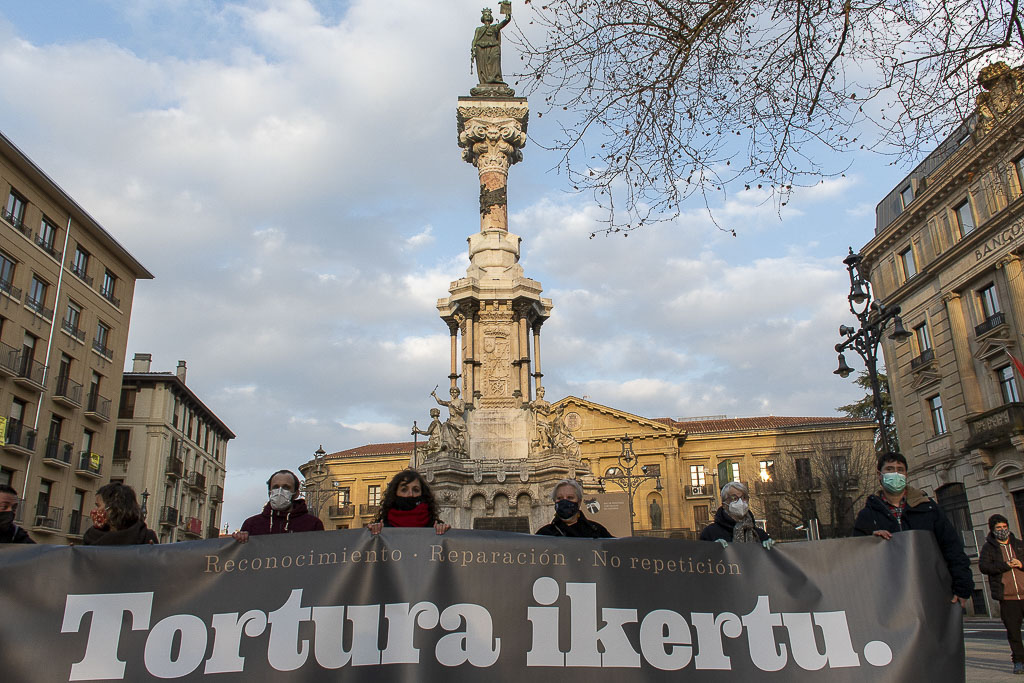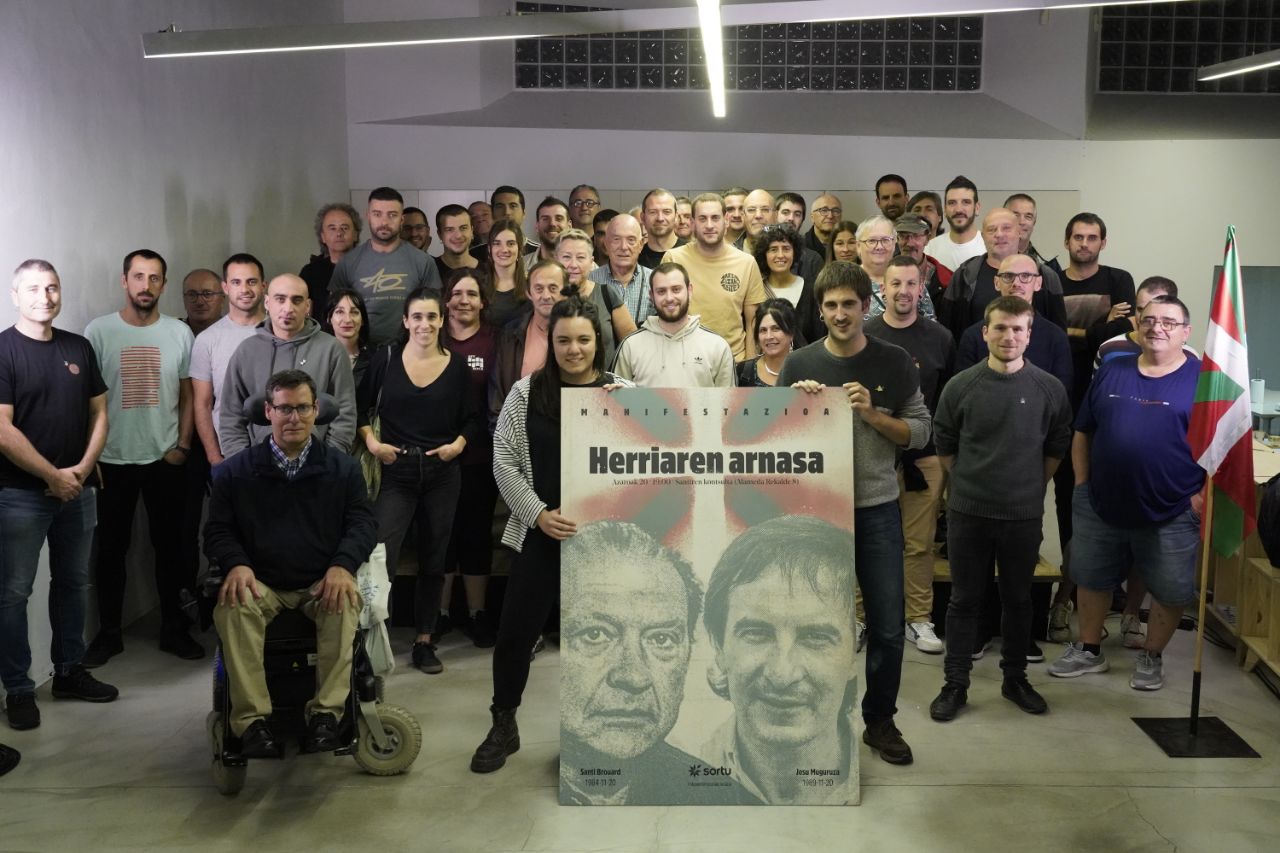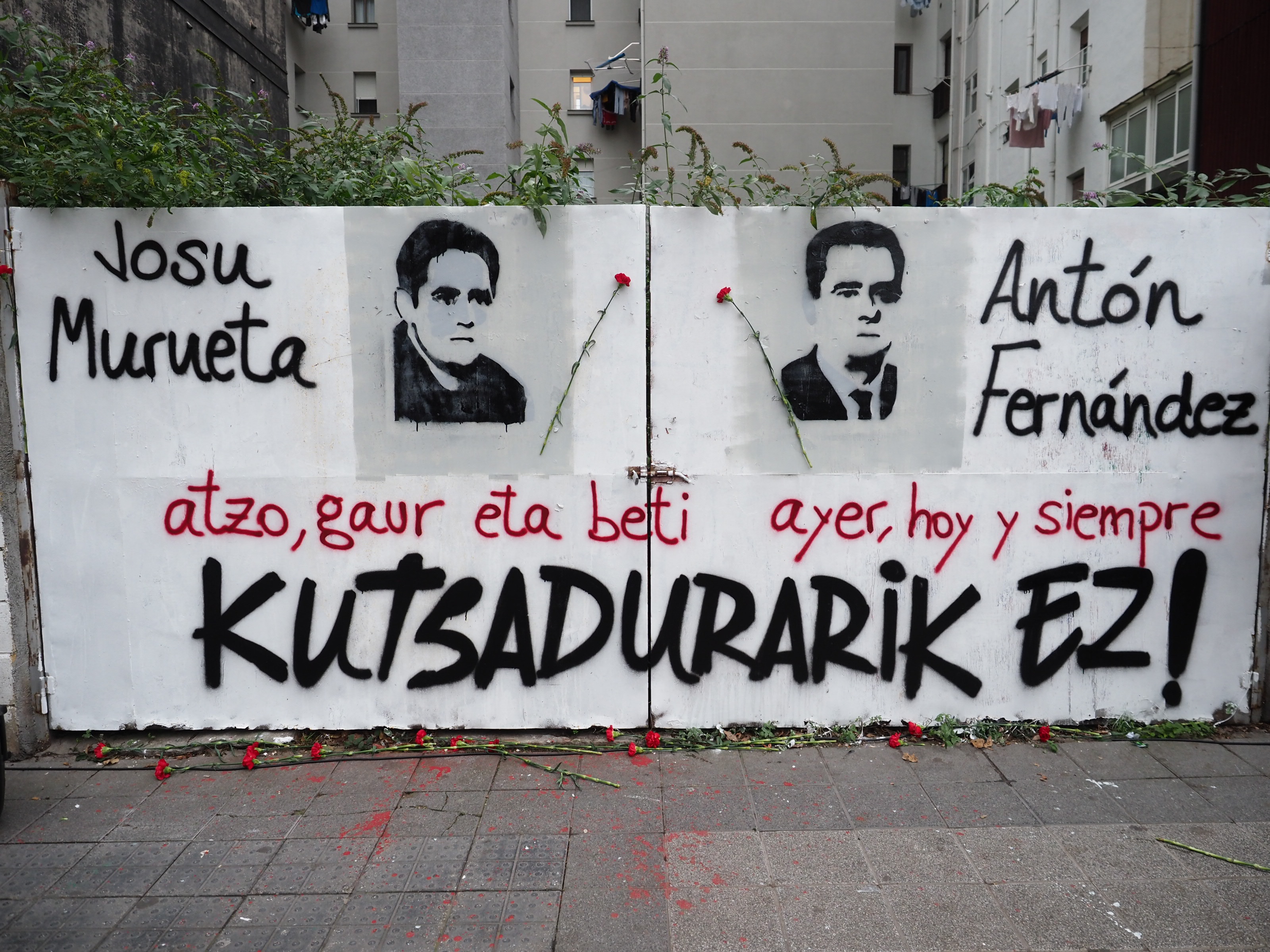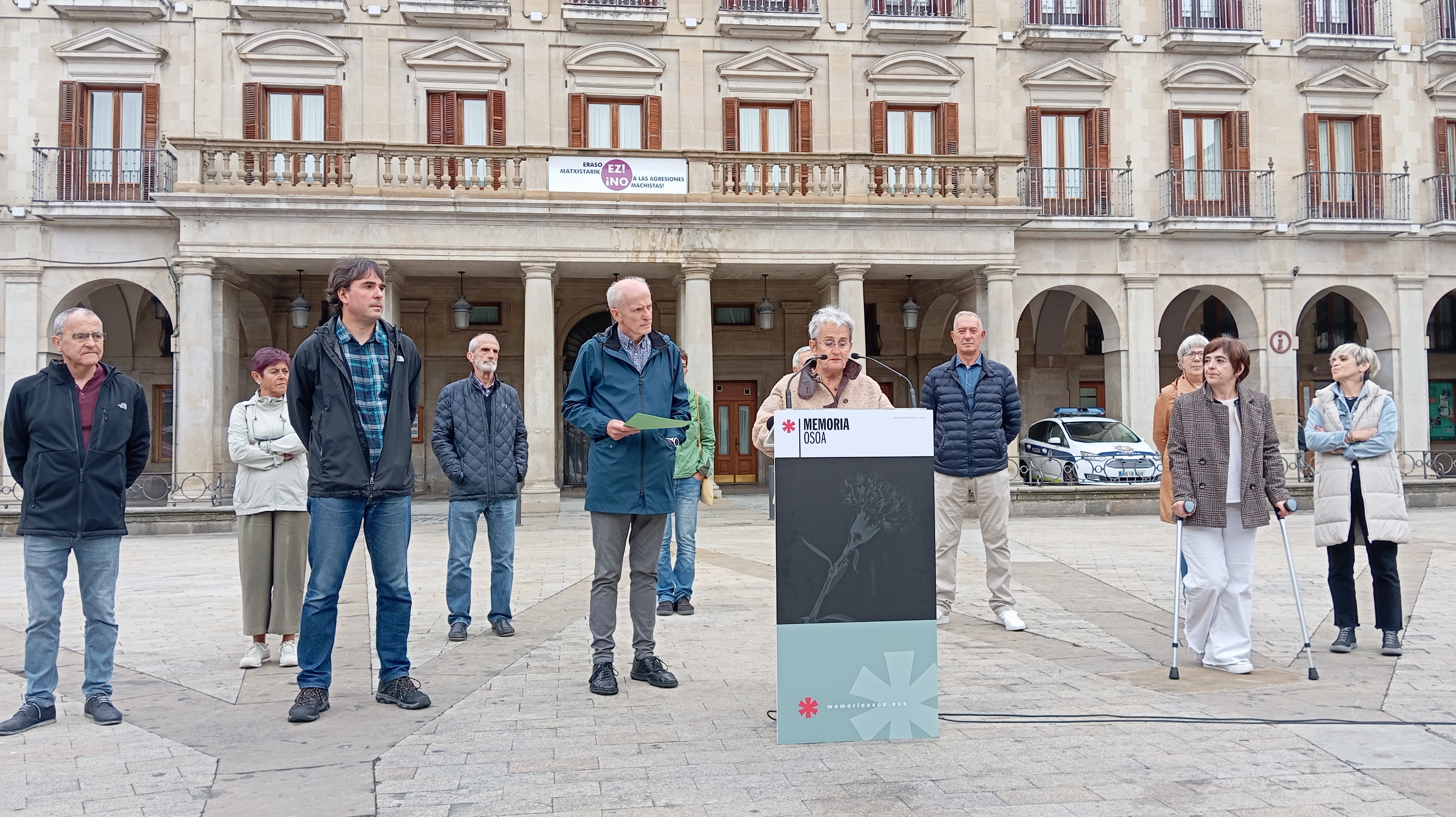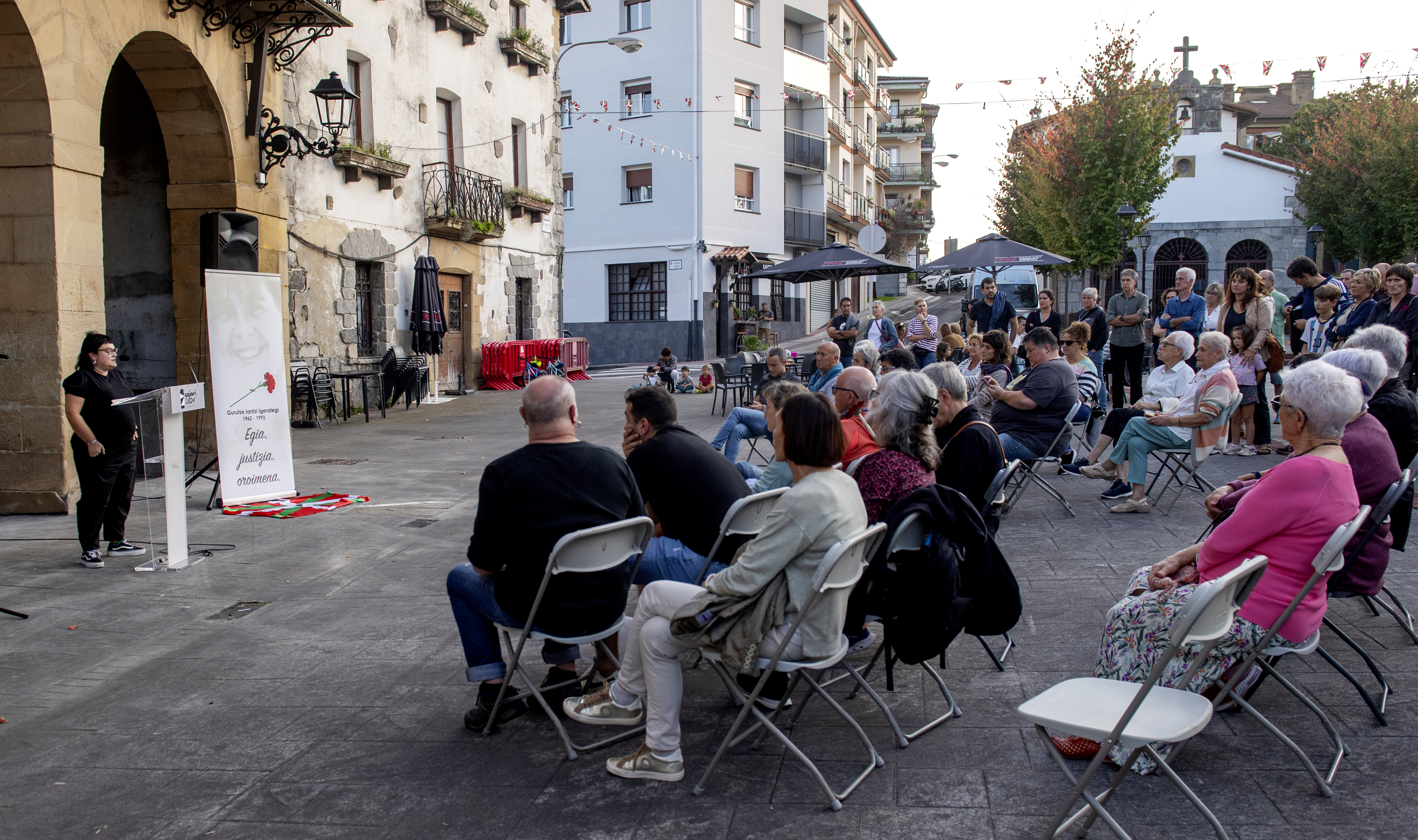"The state has not yet recognised Gladys as a victim"
- Last year marks the 40th anniversary of the assassination of Gladys del Estal in Tudela. Screenwriter Sabino Ormazabal and director Bertha Gaztelumendi (Irun, 1962) have completed the documentary that narrates the life of the anti-nuclear militant and the struggle that paralyzed the nuclear power plants of the Basque Country. Both were part of the popular movements leading the film.

You've been part of the anti-nuclear movement, but you didn't want to work from nostalgia.
No, not much less. We wanted to tell something that we hadn't told, because we think the issue has its weight. Not only because of the murder of Gladys del Estal, but because there was a very rich movement in the Basque Country, which can be analyzed from a thousand borders. What happened is not known by current generations and we have wanted to do a broadcast work with this film.
How was it possible in the 1970s to bring together so many agents and shape such a diverse movement?
I believe that the defence of the land is very important. When you see your life endangered, after all, you see your life endangered. That moves people's consciences. At that time, nuclear power stations were joining Hiroshima and Nagasaki, and people were scared by the catastrophe that had occurred. In Euskal Herria, the idea of installing so many nuclear power stations within a few kilometers lived it as a threat. All the alarms were turned on.
Four decades later, there's no power station in operation.
We tried to build four nuclear power stations in Basque lands. But it should be remembered that 50 kilometers from Baiona there was another one and then Garoña de Burgos is also very close to Vitoria. Or the ones that weren't built or built are motionless. However, there is still waste in Garoña and we do not know what is going to happen to them. There is no answer.
The documentary shows the strength of the popular movement at that time. Do you think that force is diminished?
It's hard to say. Comparing very different situations is not easy. The tools are also different, social networks did not exist and the first street was for us the main source of information. However, I believe that today there are strong movements and that in a way they put the alternatives on the table.
Environmentalism is also a topical issue.
Yes. The anti-nuclear movement gives you many keys. Forms of protest were innovative, creative. They were assembly movements and there was no hierarchy. There's a lot of learning there, and if we bring it into the present, there's a lot to think about. Times have changed and the ways to do so too, but the past always has something to show.
The anti-nuclear struggle had set aside the damage. One of them is the murder of Gladys del Estal.
It has been difficult and for us it has been a challenge to put things in place, not to confuse the threads, to understand what we would like to tell not only ourselves but others and to maintain an order in the story. Gladys has a central role in the documentary and we wanted to take this opportunity to claim that the State has not yet recognised the status of victim. In the fight, however, there were other deaths that we have also remembered.
What other testimony have you collected in the documentary?
We've interviewed 33 people and collected images from the time. So there wasn't a monopoly on the image that's out there today, and also, it could be dangerous to have photos or take them out of them, because with that they could know that you were involved in the mobilizations. Still, we have some super 8, some little treasures, and we've completed the movie with testimonials.
Did you need a lot of time to complete this work?
We started some time ago, about three years ago. However, this last year we have been very focused. The working sessions have been long and have been an effort.
In November you premiered the audiovisual in Zinebi, then you did it in Donostia. What journey will you take from now on?
From now on we would like to offer it to the people and encourage debate among the citizens. We intend to approach Sabino or I, or both, if the organizers so request. We want to make the work as widely as possible.
You have just released it, in the audiovisual section you have received the Argia prize. Satisfied?
Yes, we are very happy. We have been very excited to receive the prize. The entire working team has thanked for the recognition. We are very happy.
2008an Fernando Grande Marlaska epailearen aginduz atxilotu zutenean Ibai Azkonak pairatu zituen torturak aitortu ditu Nafarroako Gobernuak. Euskalerria Irratian, pauso honek suposatzen duena azaldu du Azkonak.









